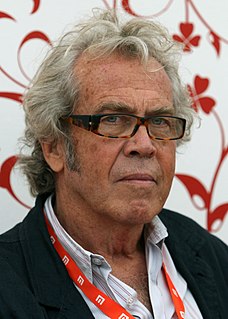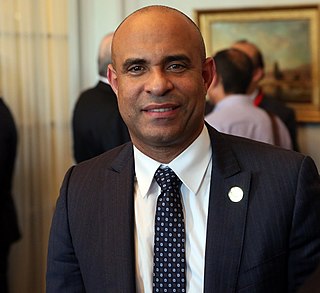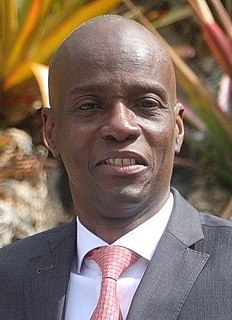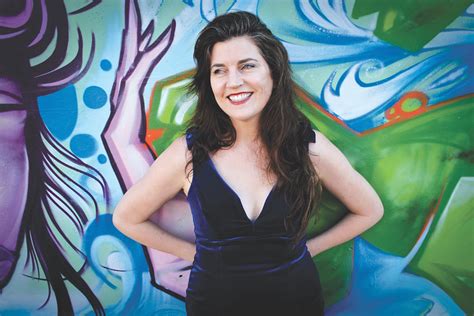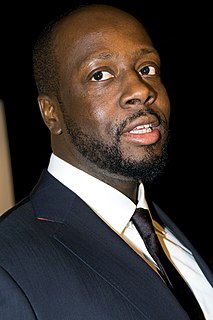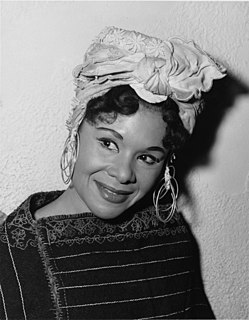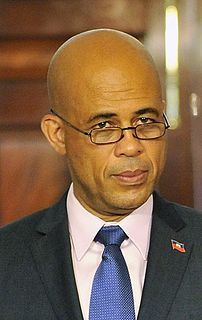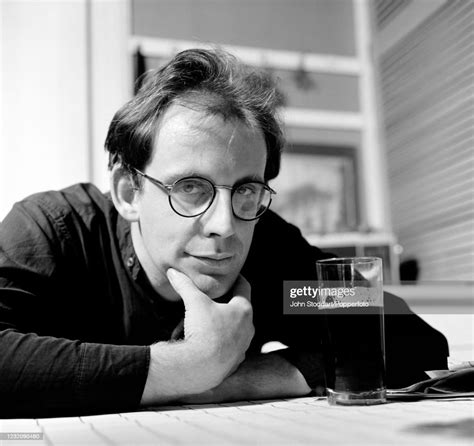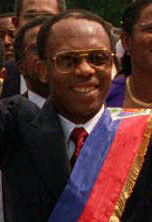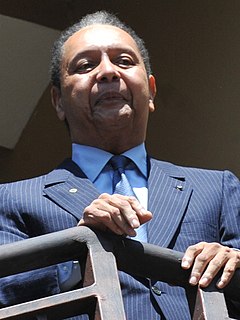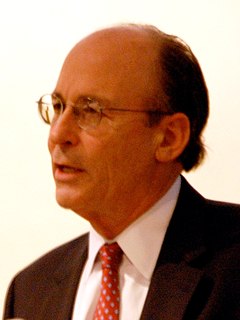Top 281 Haiti Quotes & Sayings
Explore popular Haiti quotes.
Last updated on April 14, 2025.
Those of you who have been there [Haiti] know it is one of the most beautiful countries in the world. It has everything. It has everything above the ground, and everything under the ground.... It is an amazing place. I strongly recommend that whenever you get a chance, if you haven't been there, that you go to Haiti. I think it was a certain Queen of England who said that after her death "Calais" would be found written on her heart. When I die, I think that "Haiti" is going to be written on my heart.
To read 'Happy Talk' is to crash a party as vivid and surreal as Felini's 8. It's the business of show business, the American dream, told by a chorus of Americans locked just outside of that dream, outside of the United States, relegated to expatriate status on the shores of Haiti. Melo paints a version of Haiti that's an interior landscape perhaps even more than an externalized place. This Haiti is a plan, a memory, a morphine-drip fueled dream out to bond its inhabitants forever.
If you look at the Associated Press wires, there's a constant flow of information coming in. At that time I happened to have direct access to AP wires. The day the marines landed in Haiti and restored [ Jan Bètran] Aristide there was a lot of excitement about the dedication to democracy and so on. But the day before the marines landed, when every journalist was looking at Haiti because it was assumed that something big was happening, the AP wires reported that then [Bill] Clinton administration had authorized Texaco to ship oil illegally to the military junta.
Salt is a powerful symbol in Haiti, as elsewhere. Salt of the earth, for example is an American phrase. In Haiti, myth and legend has it that if you are turned into a zombie, if someone gives you a taste of salt, then you can come back to life. And in the life of the fishermen, there are so many little things about salt that I wanted to incorporate. The salt in the air. The crackling of salt in the fire. There's all this damage, this peeling of the fishing boats from the sea salt. But there is also healing from it, sea baths that are supposed to heal all kinds of aches and wounds.
If you love Black people, why are you destroying Haiti? If you love Black people, why did you, [Hillary] Clinton, stop them from the rice that they were producing in Haiti to feed themselves and other Caribbean nations? You put the rice industry out of business; and now rice is coming from Arkansas, chicken coming from Arkansas, when it once was growing right there in Haiti.
I never considered myself as somebody in exile because, different to my father who, yes, was in exile because he left Haiti as an adult, for me it was just to be somewhere else. I carried Haiti with me everywhere, but I also carried, you know, my youth in a public school in Brooklyn. It's part of who I am as well.
The whole history between Haiti and the Dominican Republic is complicated. We share the island of Hispaniola, and Haiti occupied the Dominican Republic for twenty-two years after 1804 for fear that the French and Spanish would come back and reinstitute slavery. So we have this unique situation of being two independent nations on the same island, but with each community having its own grievance.
There is this split between the Haiti of before the earthquake and the Haiti of after the earthquake. So when I'm writing anything set in Haiti now, whether fiction or nonfiction, always in the back of my mind is how people, including some of my own family members, have been affected not just by history and by the present but also by the earthquake.
Sometimes people who want to understand Haiti from a political perspective may be missing part of the picture. They also need to look at Haiti from a psychological perspective. Most of the elite suffer from psychogenic amnesia. That means it's not organic amnesia, such as damage caused by brain injury. It's just a matter of psychology.
The spirit of Ubuntu, that once led Haiti to emerge as the first independent black nation in 1804, helped Venezuela, Colombia and Ecuador attain liberty, and inspired our forefathers to shed their blood for the United States' independence, cannot die. Today, this spirit of solidarity must and will empower all of us to rebuild Haiti.
If any country was a mine-shaft canary for the reintroduction of cholera, it was Haiti - and we knew it. And in retrospect, more should have been done to prepare for cholera... which can spread like wildfire in Haiti... This was a big rebuke to all of us working in public health and health care in Haiti.
After the Dance was my first attempt at nonfiction. I'd never really participated in carnival, and I really wanted to go. It sounded like a wonderfully fun thing to do. And I wanted to write something happy about Haiti, something celebratory. And going to carnival gave me a chance to do that, because it is one of the instances in Haiti when people shed their class separation and come together.
Between 1831 and 1891, US armed forces - usually the Marines - invaded Mexico, Cuba, the Dominican Republic, Puerto Rico, Panama, Colombia, Nicaragua, Uruguay, Brazil, Haiti, Argentina, and Chile a total of thirty-one times, a fact not many of us are informed about in school. The Marines intermittently occupied Nicaragua form 1909 to 1933, Mexico from 1914 to 1919, and Panama from 1903 to 1914. To 'restore order' the Marines occupied Haiti from 1915 to 1934, killing over two thousand Haitians who resisted 'pacification.'
Even in Haiti, I saw John Wayne movies. American cinema has always been the dominant cinema throughout the world, and people tend to forget that. People aren't just seeing these films in California or Florida. They're seeing them in Haiti, in Congo, in France, in Italy and in Asia. That is the power of Hollywood.
